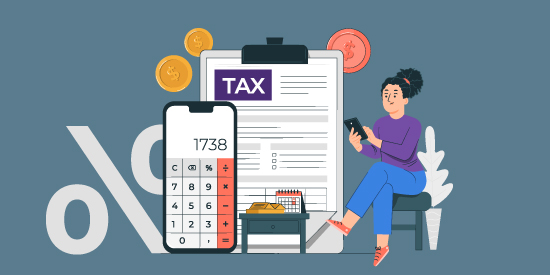Can Foreigners Buy Property in the UK? [Complete Guide]
![Can Foreigners Buy Property in the UK? [Complete Guide]](https://aspenwoolf.co.uk/wp-content/uploads/2021/06/AW-News-Posts-Foregn-buyers-1.jpg)
The UK property market has long been a magnet for international investors, drawn by its reputation for stability, strong legal protections, and the potential for significant returns.
Cities like London, Manchester, and Edinburgh are particularly attractive, offering a blend of historical value, modern development, and vibrant cultural scenes. This appeal is bolstered by the UK’s transparent and well-regulated property market, making it one of the most secure environments for real estate investment globally.
For foreigners looking to invest in the UK, the legal framework is welcoming and straightforward, allowing non-residents to purchase property under the same basic conditions as UK citizens. However, while the process is open, it involves specific steps and considerations unique to foreign investors, such as potential visa requirements, tax implications, and the need for a UK bank account. Understanding these elements is crucial for a smooth and successful investment experience.
In this article, we will answer some of the key questions foreign investors may have before purchasing an investment property anywhere in the UK. We aim to offer professional insights and guidance to ensure investors make informed decisions and achieve their investment goals.
Can a non-UK citizen buy property in the UK?
One of the advantages of investing in the UK property market is that non-British citizens are not restricted from purchasing property. This means that individuals from around the world can freely buy houses and other residential properties in the UK without needing to be British citizens or meet any specific residency requirements.
However, it is important to clarify that buying a property in the UK does not automatically grant residency or citizenship to the purchaser. Unlike some other countries that offer residency or citizenship programs through property investment, the act of buying a residential property in the UK does not provide any direct pathway to obtaining residency or citizenship.
Obtaining residency or citizenship in the UK involves a separate process governed by immigration laws and regulations.
Nevertheless, there are some notable considerations to keep in mind:
- Getting a mortgage is not as easy
- You might have to put down a hefty deposit
- It would be more hassle-free if you’re a cash buyer
- More stringent documentation will probably apply to you
Keep on reading to get more in-depth info on the possible hurdles and setbacks of buying property in the UK as a foreigner.
The Legality of Foreigners Buying Property in the UK
The United Kingdom is known for its open and inclusive approach to property investment, offering foreign investors the same legal rights to purchase property as UK residents. This welcoming stance is part of the reason the UK property market has become a global hotspot for real estate investment.
The legal framework in the UK does not discriminate based on nationality, making it an attractive proposition for international investors seeking to expand their portfolios.
Open Approach to Property Investment by Foreigners
Foreign investors can buy, sell, and rent out property in the UK without any legal restrictions specific to their non-resident status. This approach not only facilitates a smooth transaction process but also encourages a diverse and dynamic property market. The UK government’s commitment to maintaining a stable and transparent real estate market further enhances its appeal to international buyers.
However, while the purchase process is open to all, foreign investors must navigate specific financial and legal requirements. For example, they may face different stamp duty rates and, in some cases, additional taxes. It’s also important for foreign investors to be aware of anti-money laundering regulations, requiring them to provide certain documents and information during the purchase process.
Distinction Between Residential and Commercial Property Investment
While the overarching legal framework for buying property in the UK is accommodating to foreigners, there are nuances between investing in residential and commercial properties that investors should consider:
- Residential Property Investment: Foreign investors looking to buy residential properties in the UK can do so freely. However, they should be mindful of additional stamp duty land tax (SDLT) charges that apply to buyers of second homes and rental properties, which can also affect non-UK residents. There’s also the consideration of the Annual Tax on Enveloped Dwellings (ATED), which applies to companies holding UK residential property.
- Commercial Property Investment: The process for investing in commercial property is similar to that for residential, but with some differences in tax treatment and potential yields. Commercial property can offer longer lease terms and, potentially, more stable returns, but it might also require a larger initial investment and come with different management responsibilities.
In both cases, foreign investors benefit from the UK’s strong legal system and property rights protection, making it a secure environment for investment. Whether interested in residential or commercial properties, investors are advised to conduct thorough market research and consider consulting with legal and financial advisors to navigate the UK’s property market effectively. This preparation ensures that international investors can fully capitalize on the opportunities available while complying with all legal and regulatory requirements.
Can Foreigners Buy Property in the UK and Get a Mortgage?

While the UK property market welcomes foreign investors, non-residents may encounter challenges when it comes to qualifying for a mortgage or obtaining a large loan. Most mortgage lenders in the UK have restrictions and are hesitant to lend to non-UK residents, making it difficult to secure financing. Consequently, foreign investors who have the means to make a cash purchase may find the property acquisition process more straightforward.
For those foreign investors who are able to obtain a UK mortgage, it is important to note that a deposit ranging from 5% to 40% of the property’s cost is typically required. The exact deposit amount will depend on factors such as the lender’s policies, the borrower’s financial profile, and the specific terms of the mortgage agreement. It’s essential to be prepared to provide a substantial deposit to secure a mortgage in the UK.
While the mortgage lender will conduct an evaluation survey on the property, it is advisable for foreign investors to commission their own independent survey. This additional survey will provide a comprehensive assessment of the property’s condition and can help identify any potential repair or maintenance costs that may arise in the future.
It is important for foreign investors to seek professional advice from mortgage brokers, financial advisors, and surveyors who specialize in the UK property market. These experts can provide guidance on financing options, help navigate the mortgage application process, and ensure that investors have a clear understanding of the associated costs and potential future obligations.
Should Foreign Investors Consider a Leasehold or Freehold Property?
When considering investment opportunities in the UK housing market, it is crucial for foreign investors to understand the distinction between leasehold and freehold properties.
Leasehold refers to a property ownership arrangement where the investor does not own the building or the land on which it stands. This type of ownership is typically associated with flats or apartments, where multiple units are housed within a larger building. In a leasehold arrangement, the investor holds a lease from the freeholder, granting them the right to occupy the property for a specific period, usually long-term, as stipulated in the lease agreement.
For foreign investors, leasehold properties can be an appealing option in the UK housing market. One advantage of leasehold ownership is that it comes with fewer responsibilities and potential costs for repairs or maintenance. Typically, the freeholder or the property management company is responsible for the upkeep and maintenance of the building and any communal areas. This means that in the event of damage or issues with the property, the responsibility for repairs and associated costs often falls on the freeholder rather than the leaseholder.
On the other hand, freehold ownership grants the investor complete ownership of both the building and the land it sits on. This type of ownership is more commonly associated with houses or other standalone properties. As a freeholder, any damage or maintenance requirements for the property become the investor’s responsibility. While this provides greater control over the property, it also entails bearing the financial burden of repairs or renovations.
Can Foreigners Buy Student Rental Properties in the UK?

Foreigners looking to invest in a buy-to-let property should be aware of the two main types of properties that in the UK:
- student properties
- residential properties.
On the whole, student properties tend to be cheaper to purchase than residential properties, but this will depend on the area. To help you find the right area, we’ve prepared this article –Best Areas for Student Accommodation Investment
As a foreign investor in the UK property market, the type of buy-to-let property you focus on will depend on the tenant market you wish to access. The UK has a thriving student market, particularly in cities and university towns, and students often pay higher rent than residential tenants.
However, there tend to be more upfront costs such as wear and tear and renovation costs to make sure the property meets legal requirements. If you’re wondering whether student property is a good investment, read our guide to investing in student property in the UK.
Does the UK Stamp Duty Apply to Foreign Investors?
When investing in a UK property, foreign investors should bear in mind that upfront costs, taxes and fees will apply in addition to the property price. As of 1 April 2021, a new stamp duty charge for non-UK residents applies. With the aim to bring down property prices, this 2% stamp duty charge is on top of the existing rate of tax and calculated on the value of the property.
However, if the overseas investor is a first-time buyer in the UK, they can qualify for a first-time buyer tax rate – if the property value is less than £300,000, the buyer will just have to pay the 2% surcharge.
Buying a Buy-to-let Property in the UK as a Foreigner

Investing in a buy-to-let property can be a smart decision for foreign investors seeking to diversify their investment portfolios and generate passive income. When evaluating potential buy-to-let properties, one of the key factors to consider is rental yield.
Fortunately, many cities across the UK offer attractive buy-to-let options, presenting investors with opportunities to earn high returns. For example, according to recent data, 25 postcodes across the UK have rental yields of over 6%. These postcodes include locations in cities such as Liverpool, Manchester, and Newcastle.
Liverpool is one of the cities in England that has the highest number of buy-to-let postcodes with rental yields of over 6%. In fact, according to recent research, Liverpool is the city with the highest rental yields in the UK, with an average rental yield of 6.3%. This is due to a combination of factors such as relatively affordable property prices, high rental demand, and a growing student population.
In Liverpool, there are several areas that are particularly attractive for buy-to-let investors. For instance, areas such as L7, L6, and L1 have rental yields of over 7%. Additionally, the city’s overall property market is buoyant, with experts predicting further growth and appreciation in property values.
If Liverpool simply doesn’t tickle your fancy, we’ve got you covered with our article on Best Buy-to-Let Areas in the UK, such as:
- Manchester
- Nottingham
- Leeds
- Bradford
Do Foreign Investors Need to Pay Capital Gains Tax on a UK Property?

Foreign investors looking to invest in the UK housing market should be aware of the capital gains tax implications associated with buying and selling a property. Capital gains tax is a tax on the profit made from selling or disposing of an asset, including property.
As of April 6th 2020, you need to report, pay and submit a non-resident CGT (Capital Gains Tax) return on:
- Residential UK property or land
- Non-residential Uk property or land
- Mixed-use property or land
- Rights to assets that have at least 75% of their value from UK land
While foreign investors may not be immediately liable for capital gains tax upon purchasing a property, they will be subject to the tax upon the sale of the asset. Capital gains tax is calculated based on the difference between the purchase price of the property and the sale price, taking into account any costs associated with the sale. The tax is calculated at a rate of 28% for individuals and 20% for corporations.
However, it is worth noting that foreign investors may be entitled to a capital gains tax exemption or reduction under certain circumstances. For example, non-residents who sell UK residential property may be eligible for a tax exemption if they are a resident of a country with which the UK has a double taxation agreement.
It is important for foreign investors to seek professional advice from a tax specialist to understand their specific tax obligations and entitlements when investing in UK property. This will help investors to make informed decisions and avoid any potential tax liabilities or penalties. It is also crucial for investors to keep detailed records of all costs associated with the purchase and sale of the property to accurately calculate their capital gains tax liability.
Does Rental Income Tax Apply to Overseas Investors in UK Property?
Foreign investors who purchase a buy-to-let property in the UK will be subject to UK income tax on any rental income generated from the property. The tax rate for rental income varies depending on the investor’s total income and whether they are a UK resident or non-resident.
Foreign investors will need to register for self-assessment with the UK tax authority, HM Revenue and Customs (HMRC), to report their rental income and pay the relevant tax due. They may also be required to pay additional taxes such as council tax and property tax.
It is essential for foreign investors to seek professional tax advice to ensure that they comply with UK tax laws and regulations. Investors must keep accurate records of their rental income and expenses, including mortgage interest payments, property maintenance costs, and other related expenses, to claim the appropriate deductions and reduce their tax liability.
If you’d like more professional guidance on landlord tax in the UK, you might find this article useful.
Other Considerations and Costs for Overseas Buyers Investing in the UK Market
Conduct Proper Due Diligence
For overseas property investors that may not be living in the UK, it’s important to undertake proper due diligence before making any property investment. Foreign inventors should fully research the property market – which has regional variations – the company and developer behind the property or project and obtain a survey on the property if applicable.
Investors who are unable or unprepared to travel to view investment properties in person can purchase their buy-to-let property virtually. As a result of the COVID-19 pandemic and national lockdowns across the UK, more property investment companies have such processes in place, giving foreign investors the opportunity to make virtual tours and undertake the purchase of a property remotely.
Hire a Solicitor
When purchasing any property, it is usual to employ a solicitor who will provide assistance with the legal elements of the investment, including due diligence, researching any legal issues concerning the property, ordering a survey to ensure there are no structural issues with the property and generally ensuring the investment process runs smoothly.
In addition, a solicitor will require the relevant proof of identity documents in order to comply with money laundering regulations before supplying a foreign investor with a purchase contract, leasehold agreement and completion statement, which details the amount of money required to complete the property purchase.
Work with a Property Management Company
If investing in a buy-to-let property, property management companies can assist with the day-to-day duties involved with owning a rental property such as finding tenants, responding to tenant problems and queries and ensuring the property creates consistent rental income. Property management companies usually charge a percentage of the rental income as their fee.
Key Steps for Foreigners Buying Property in the UK
Investing in the UK property market can be a rewarding venture for foreign investors, but it requires thorough preparation and understanding of the process. Here’s a comprehensive guide to navigating the complexities of buying property in the UK as a non-resident.
Researching the Market:
– Importance of Understanding Regional Property Markets: The UK’s property market is diverse, with significant variations in price, demand, and investment potential across different regions and cities. Understanding these regional nuances is crucial for making informed decisions and identifying opportunities that align with your investment goals.
– Resources for Market Research: To gain insights into the UK property market, foreign investors can utilize a variety of resources, including:
- Online property portals and real estate websites for current listings and market trends.
- Property market reports and analyses from reputable real estate agencies and consultancies.
- Local government and council websites for information on development plans and property taxes.
Financial Considerations:
Investing in UK property involves several financial considerations, including the initial purchase price, taxes, legal fees, and ongoing maintenance costs. Foreign investors may also face higher stamp duty rates, especially on additional properties.
Foreign buyers should be aware of the Stamp Duty Land Tax (SDLT), which varies based on the property price and type. As of recent regulations, there may be an additional 2% surcharge for non-UK residents buying residential property in England and Northern Ireland. Understanding these tax obligations is essential for budgeting your investment.
Legal Process:
– Outline of the Conveyancing Process in the UK for Foreign Buyers: The conveyancing process involves several steps, from making an offer and having it accepted to exchanging contracts and completing the sale. This process is typically facilitated by a solicitor or conveyancer who ensures the legal transfer of property.
– Role of Solicitors and Legal Advisors in the Buying Process: A solicitor or legal advisor plays a crucial role in guiding foreign investors through the UK’s property buying process, including conducting property searches, handling contract negotiations, and ensuring compliance with all legal requirements.
Mortgage and Financing Options:
Foreign investors can access mortgage products in the UK, but the availability and terms may vary. Lenders typically require a higher deposit from non-UK residents and may have specific eligibility criteria.
To secure financing, foreign investors should:
- Establish their creditworthiness and provide proof of income.
- Consult with mortgage brokers who specialize in assisting international clients.
- Compare different mortgage offers to find the best rates and terms.
Setting Up a UK Bank Account:
Having a UK bank account is often necessary for managing property-related transactions, including mortgage payments, utility bills, and receiving rental income. Opening an account requires proof of identity, address (both in your home country and the UK, if applicable), and possibly a reference from your current bank.
Understanding Visa and Residency Requirements:
How Property Ownership Impacts Visa and Residency Status: Owning property in the UK does not automatically grant residency rights or a visa. However, foreign investors may be eligible for certain types of visas, such as the Investor Visa, depending on their investment level and circumstances. It’s important to consult with immigration experts to understand how property investment can align with visa and residency applications.
Benefits of Buying Property in the UK as a Foreigner
Investing in the UK property market offers foreign investors a host of advantages, from the potential for significant financial gains to the stability and security of a well-regulated market. Here are some of the key benefits:
Potential for Capital Appreciation
One of the most compelling reasons to invest in the UK property market is the potential for capital appreciation. The UK, particularly London and other major cities, has a long history of property values increasing over time. Several factors contribute to this trend, including limited housing supply, ongoing demand, and the UK’s strong economic fundamentals. For foreign investors, this means that the property they purchase today is likely to increase in value, offering a substantial return on investment when they decide to sell.
Rental Yield Prospects
The UK’s robust rental market presents another attractive opportunity for foreign investors. With a significant portion of the population choosing to rent rather than buy, particularly in urban areas and university towns, investors can benefit from steady rental income. Rental yields vary across different regions and property types but can be particularly lucrative in high-demand areas. Furthermore, the presence of a diverse tenant base, from students to professionals, offers investors flexibility in targeting different segments of the market to maximize their rental yields.
Stability of the UK Property Market
The UK property market is renowned for its stability and resilience, making it an attractive option for foreign investors seeking a safe investment environment. Several factors contribute to this stability:
- Regulatory Framework: The UK has a transparent and well-established legal and regulatory framework for property transactions, providing security and predictability for investors.
- Economic Stability: As one of the world’s leading economies, the UK’s economic stability supports a strong property market, with consistent demand for both residential and commercial properties.
- Market Maturity: The maturity of the UK property market means that it is less volatile compared to emerging markets, offering more predictable returns on investment.
In addition to these benefits, foreign investors in the UK property market can also take advantage of the country’s extensive professional services ecosystem, including legal, financial, and real estate experts, to support their investment journey. Whether looking for capital growth, rental income, or a stable investment haven, the UK property market offers a compelling proposition for international investors.
Conclusion
If you’re a foreigner wondering whether you can buy a property in the UK, it’s certainly possible and with relatively low prices, future growth prospects and potential for strong rental yields and capital gains, investing in the UK housing market presents many advantages. To find out more about purchasing a property in the UK as an overseas buyer, get in touch today.

